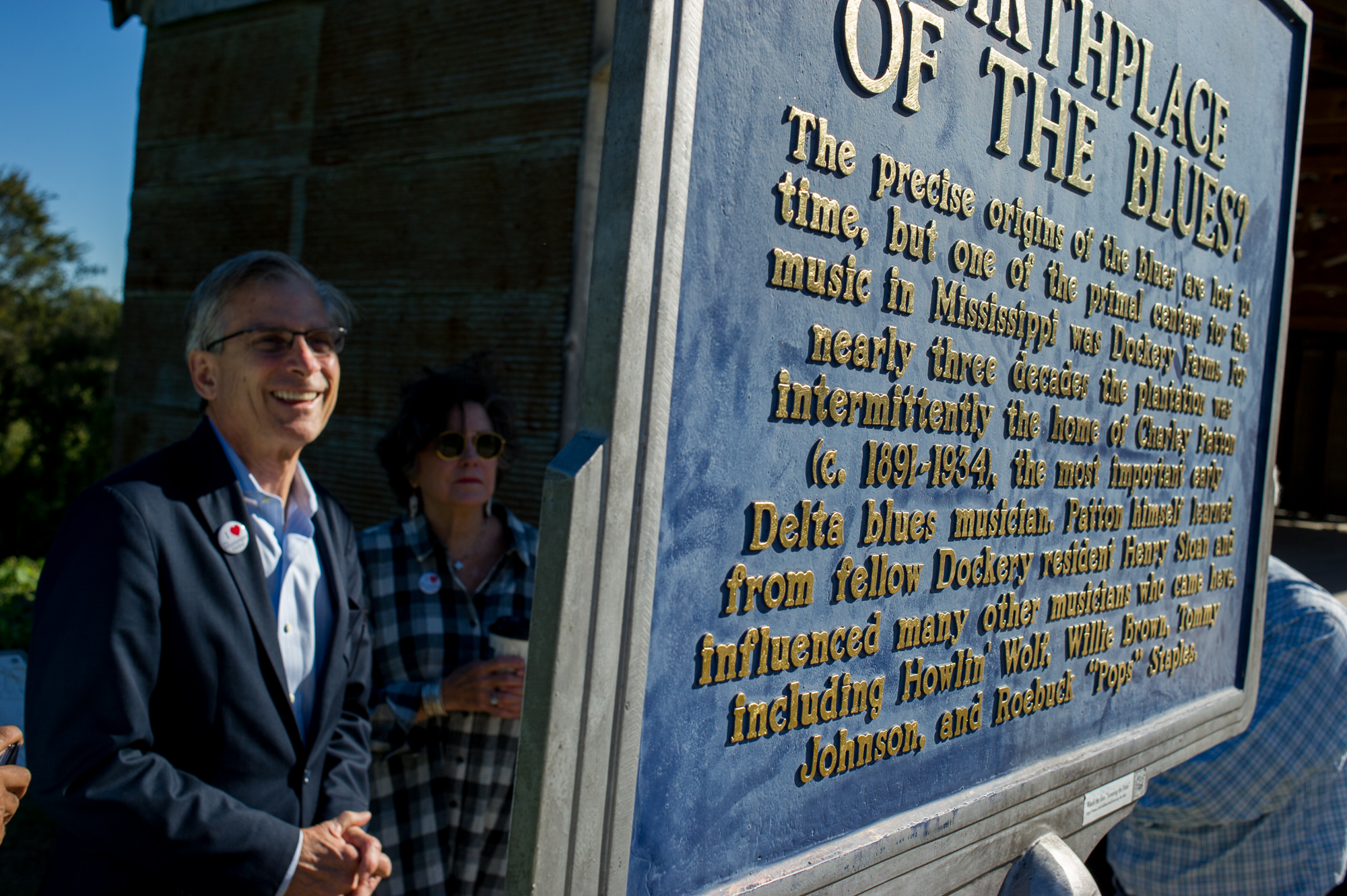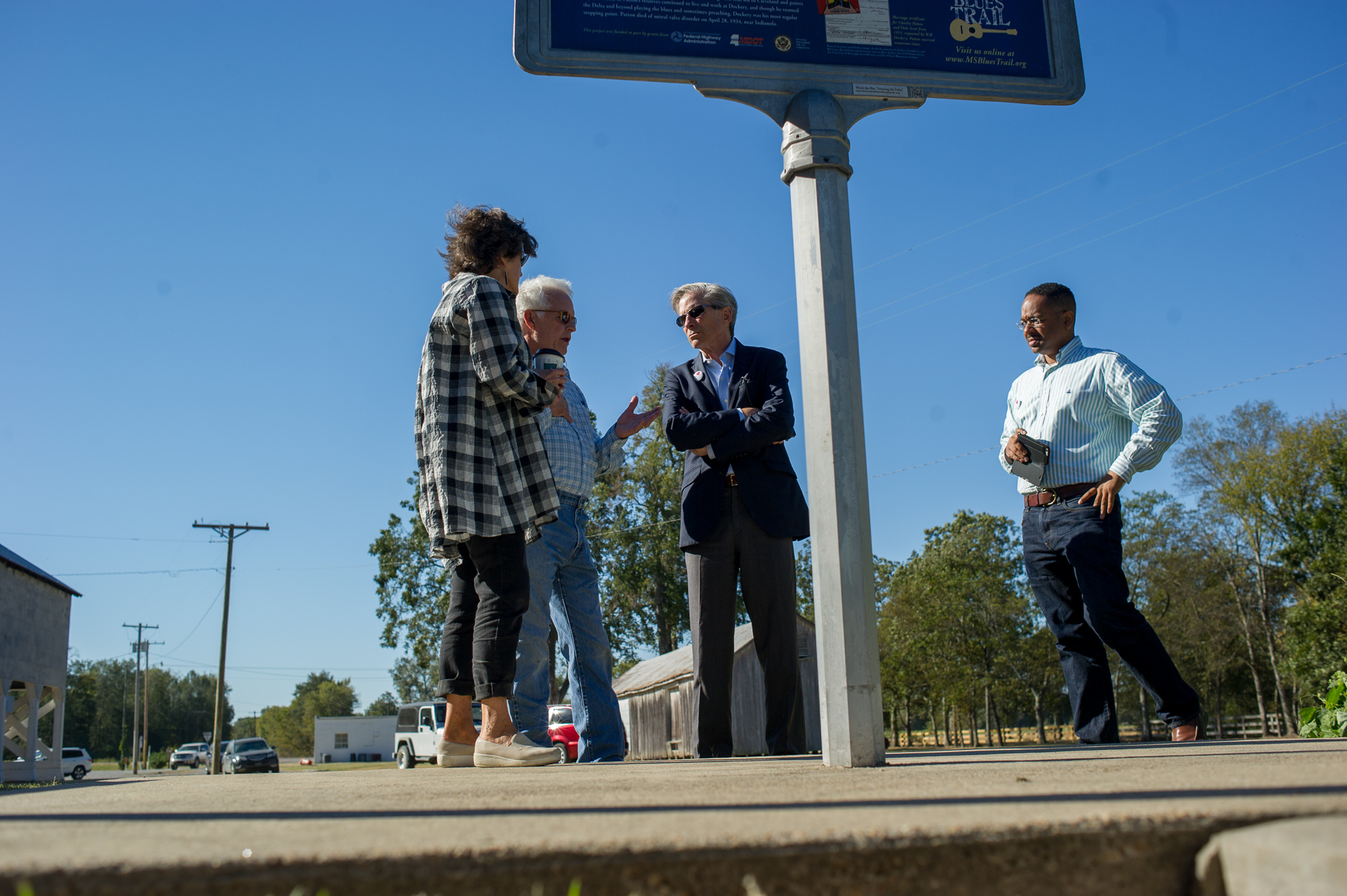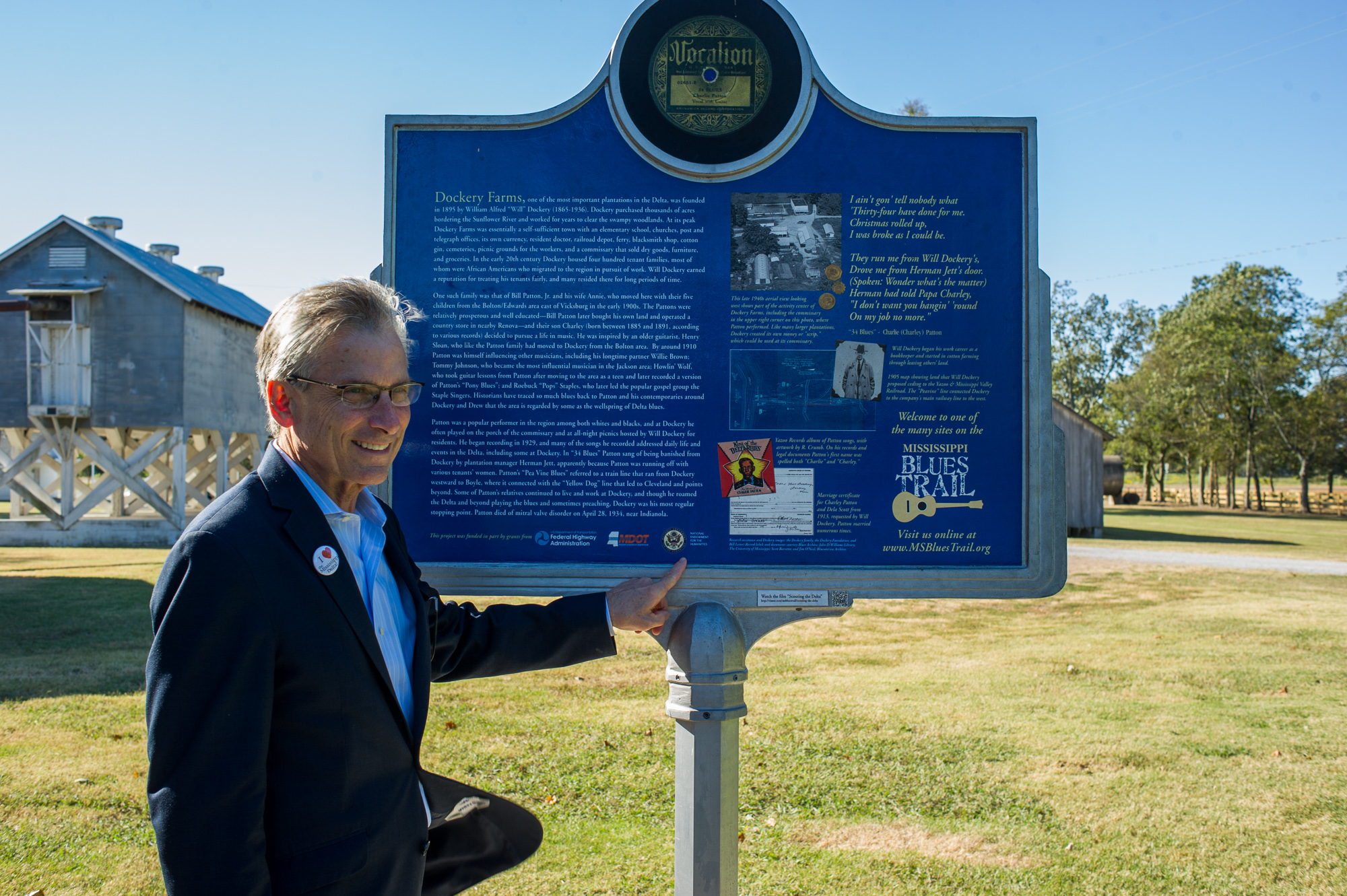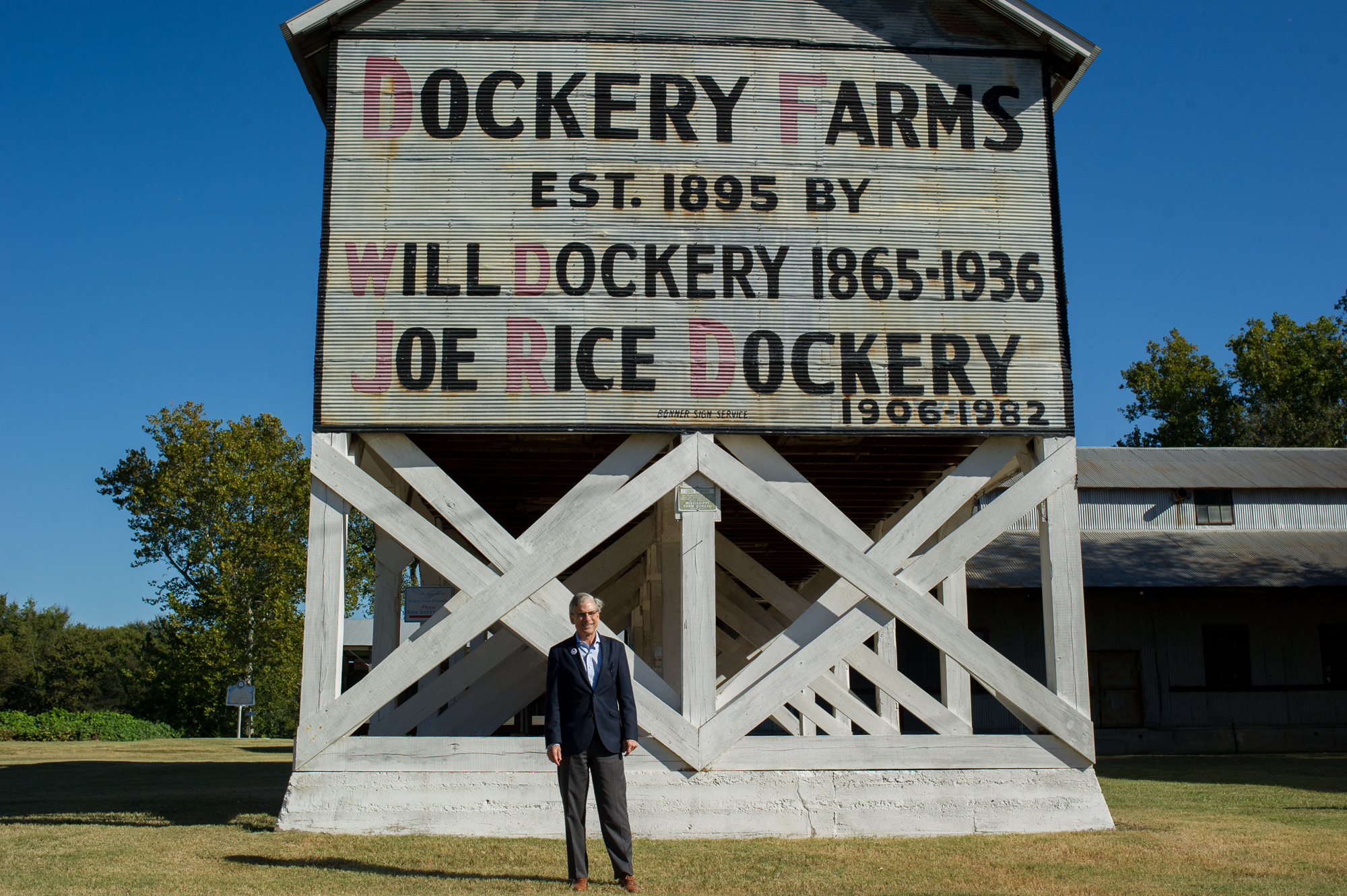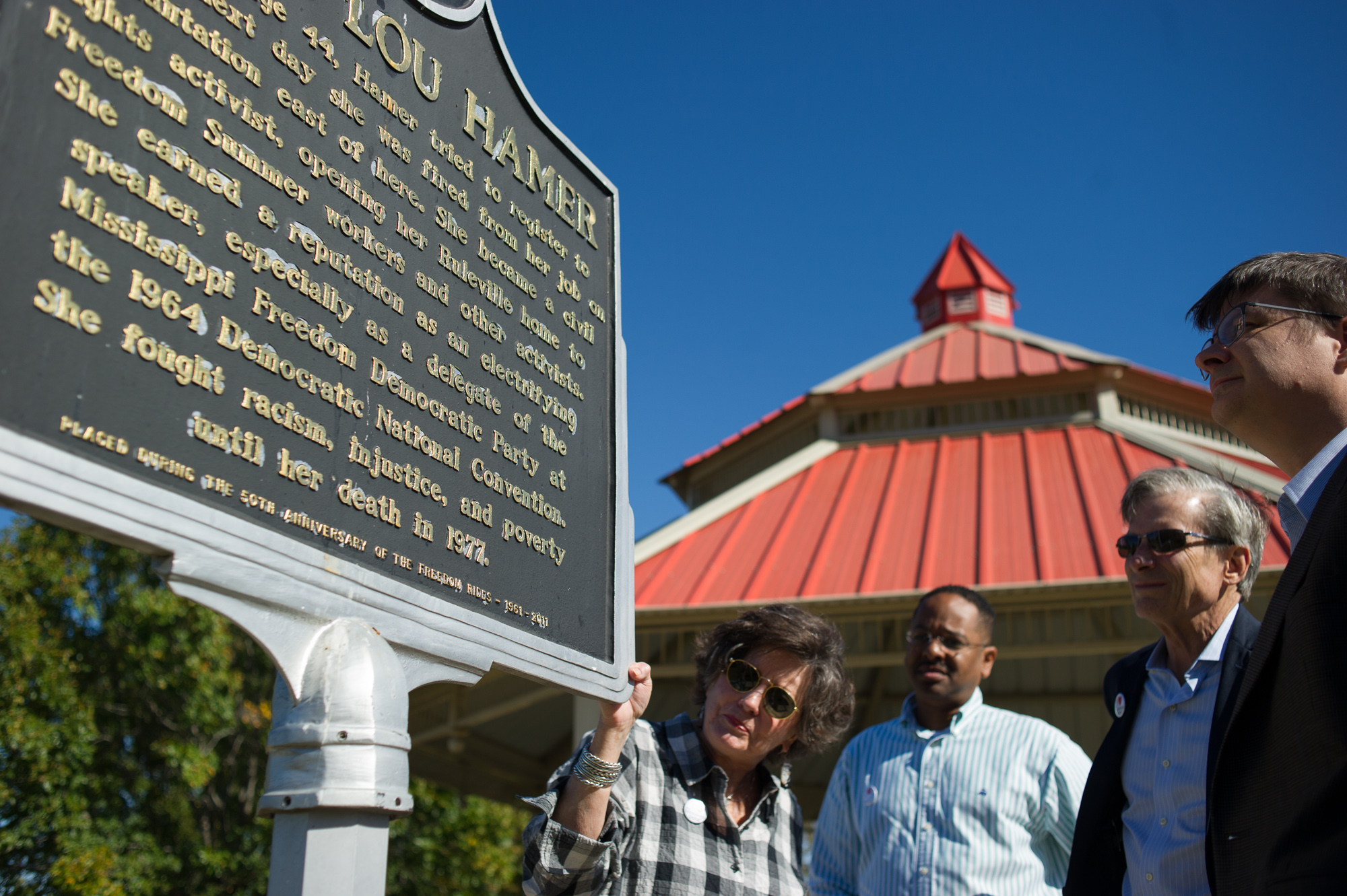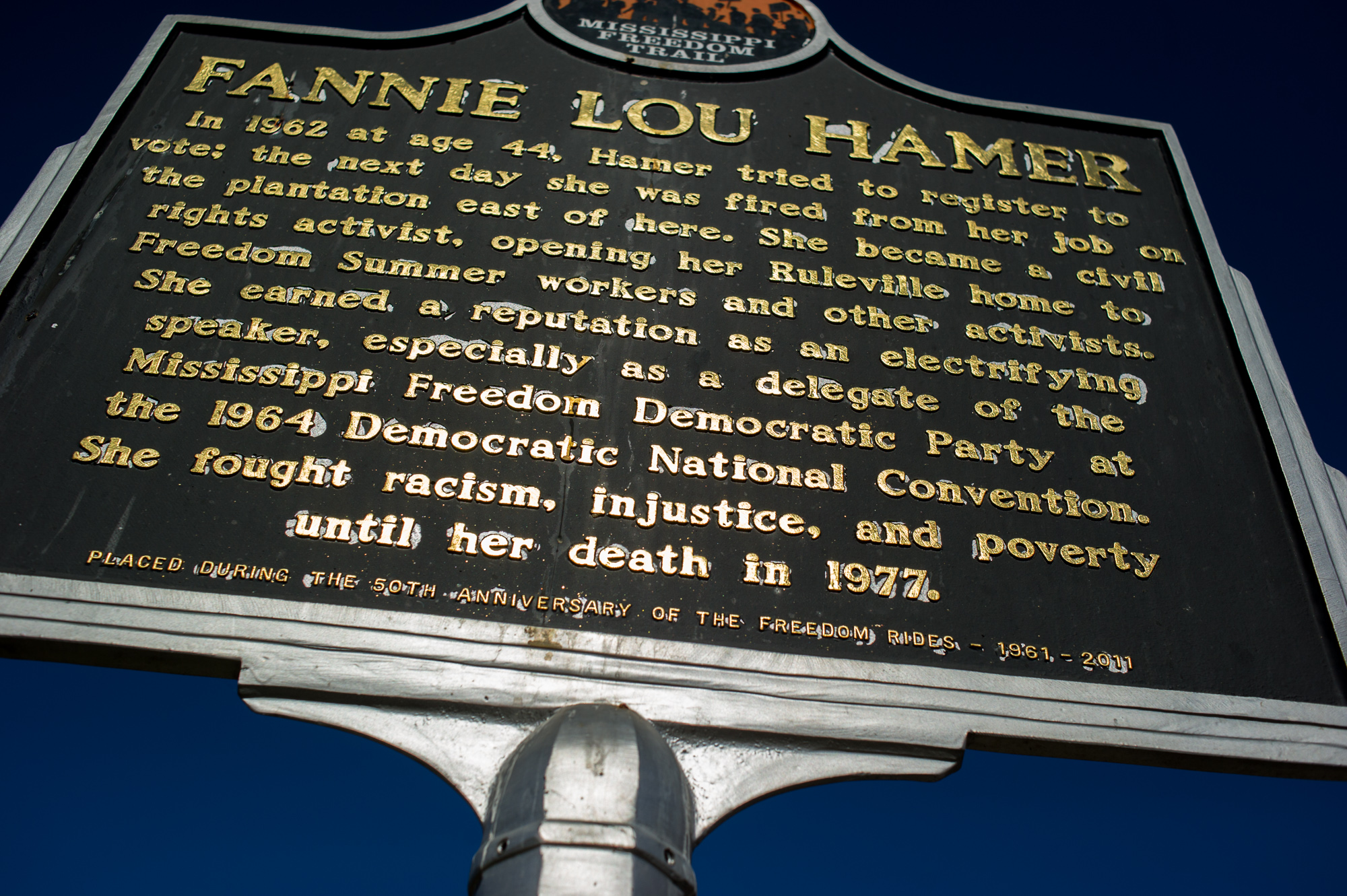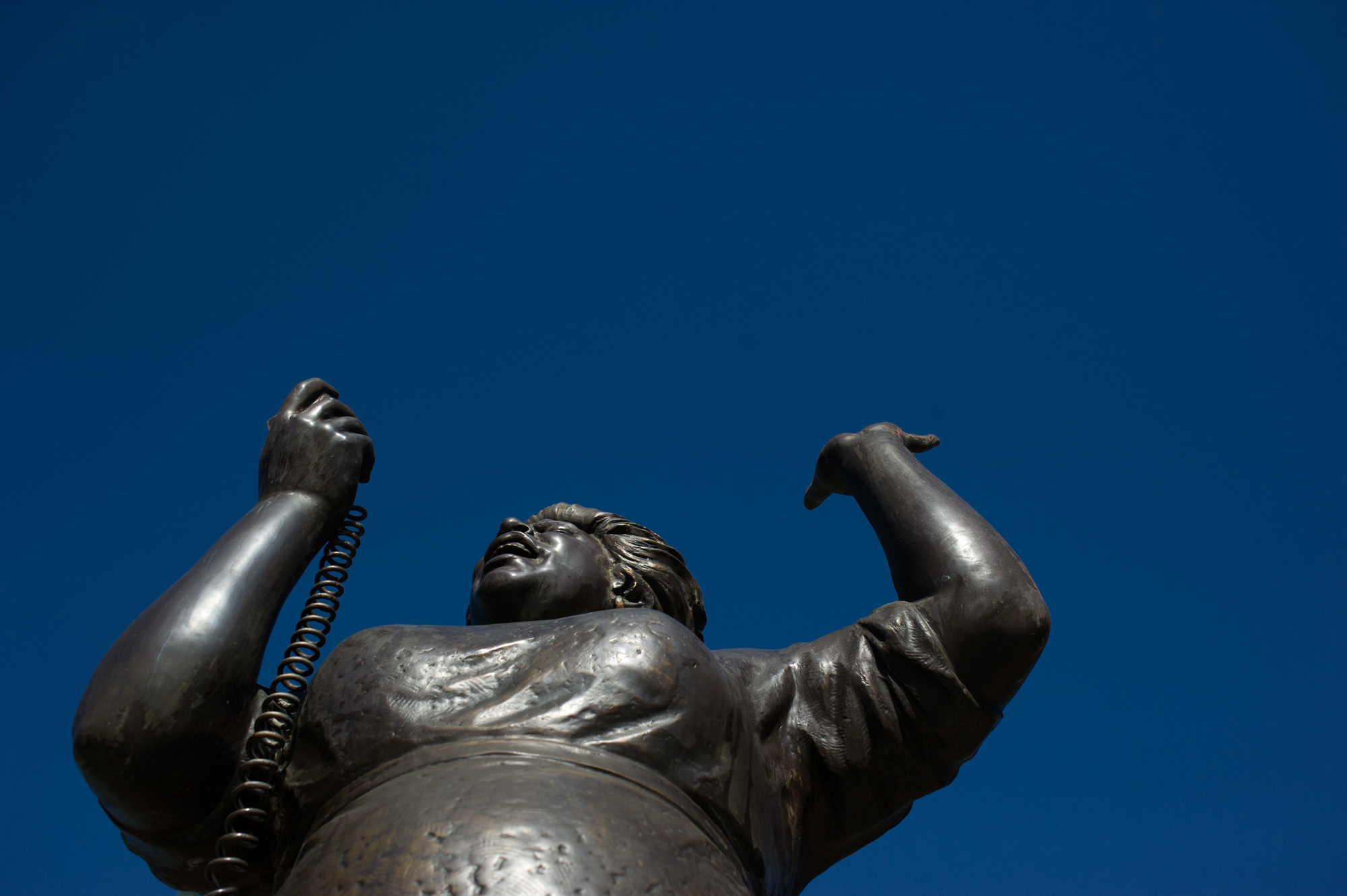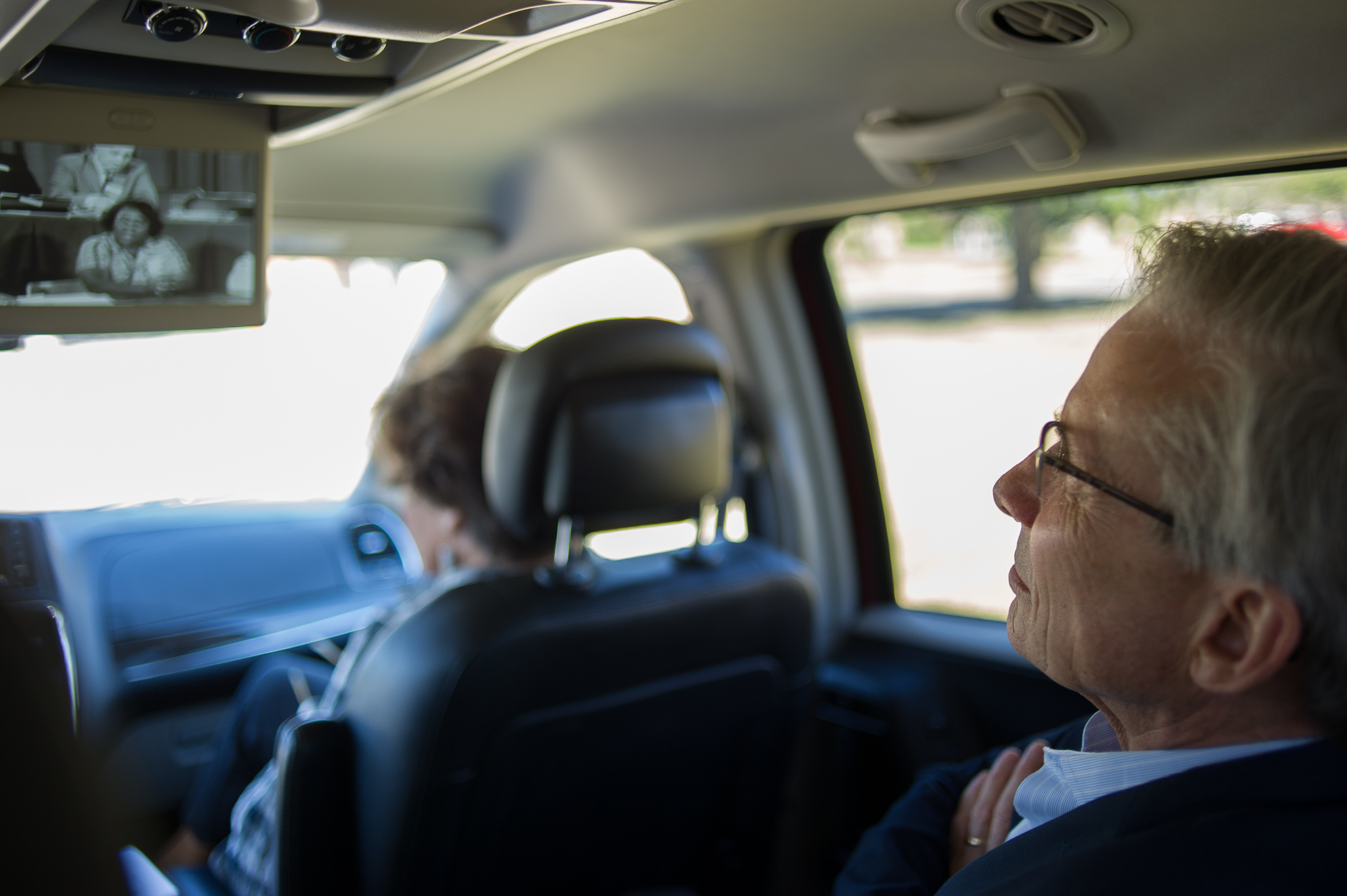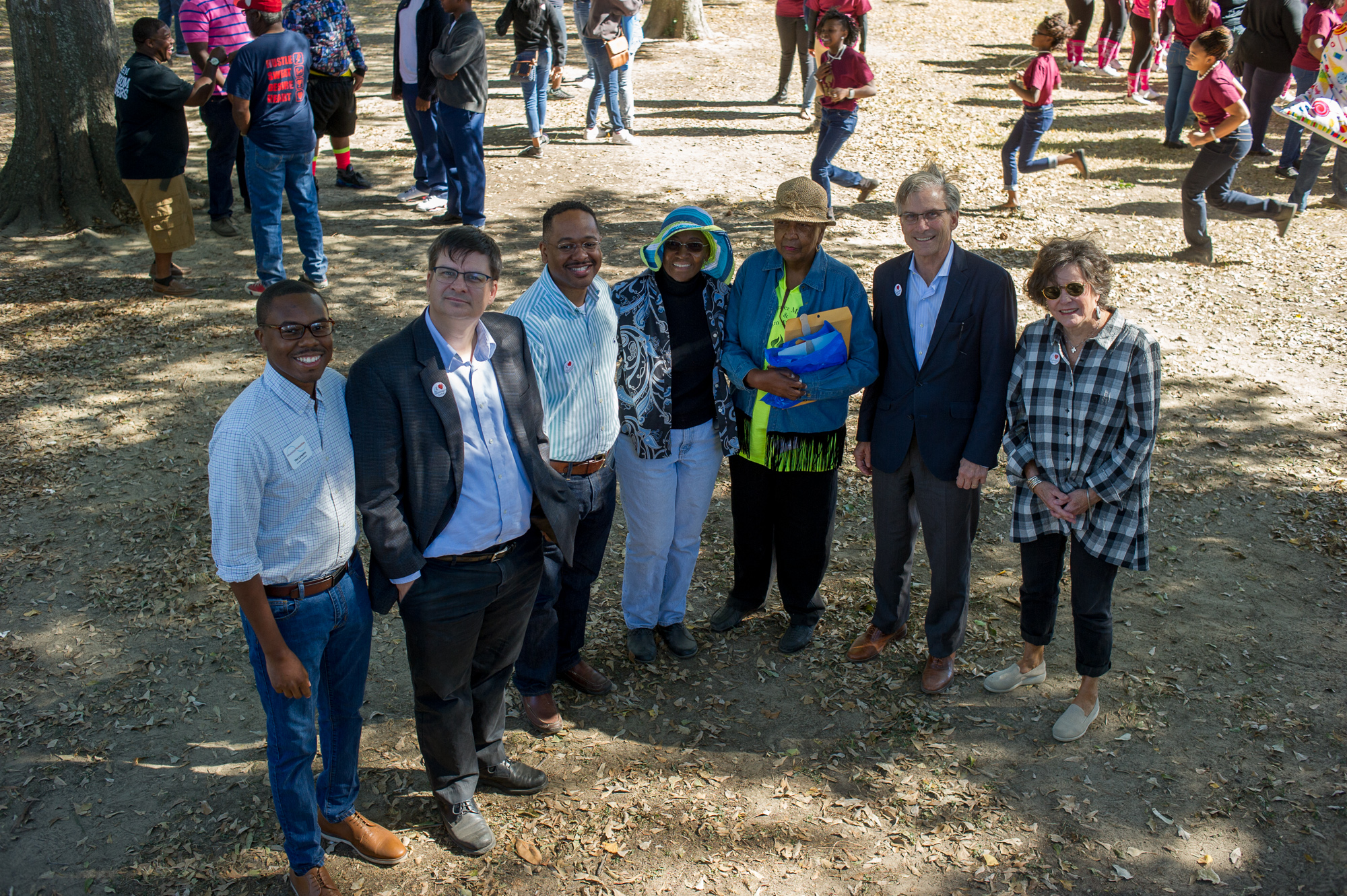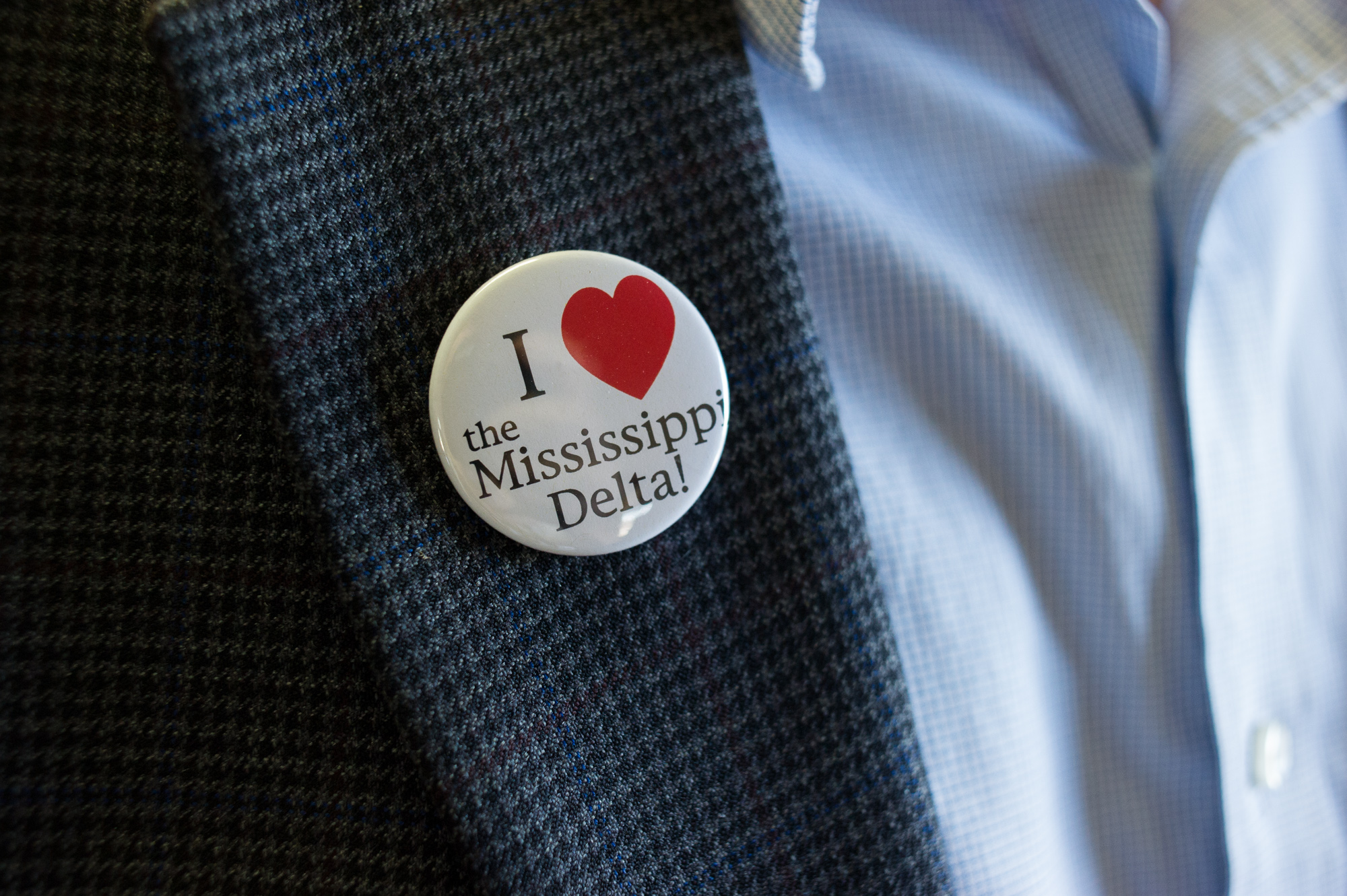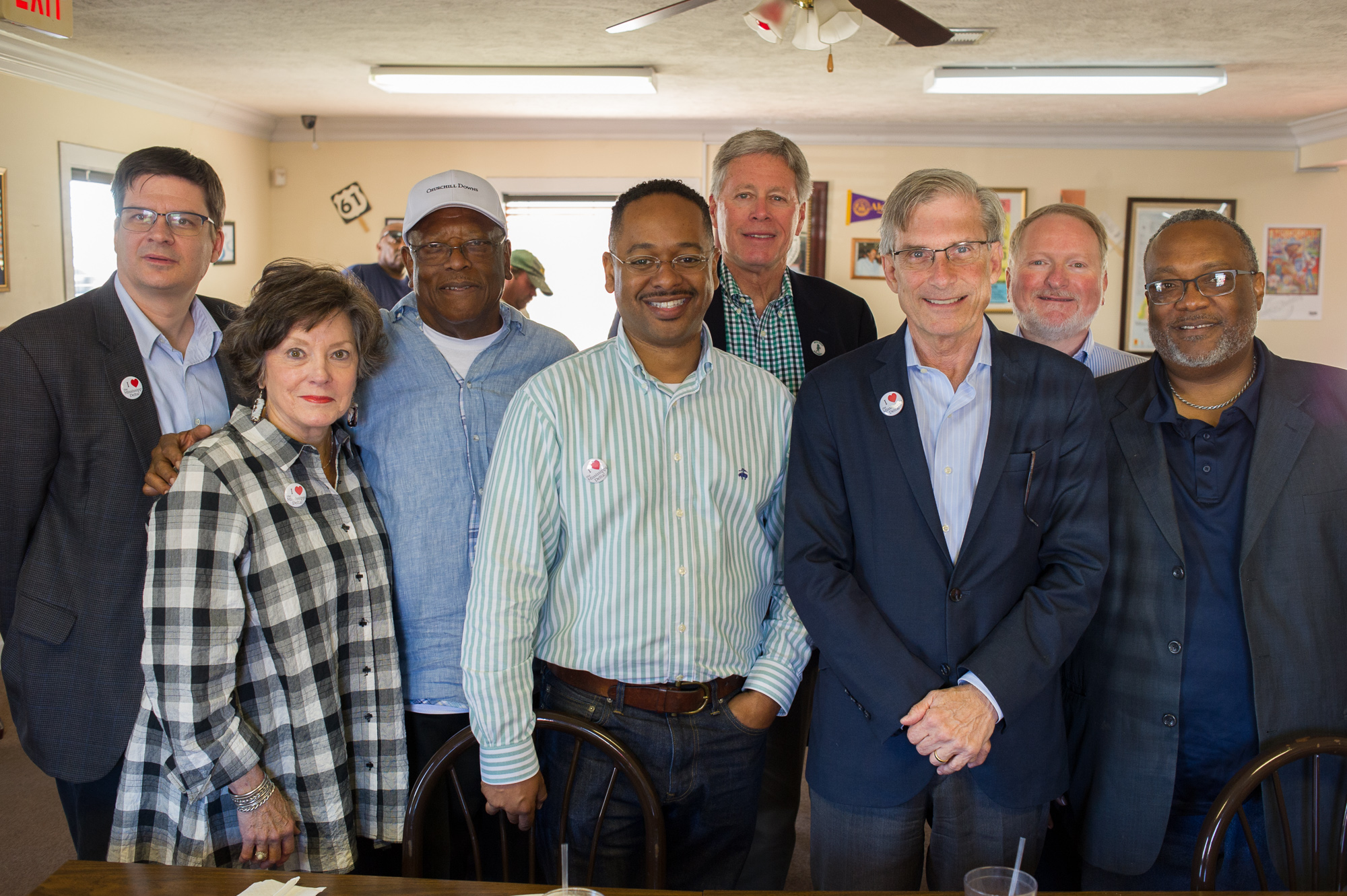National Park Service considers Mississippi Civil Rights sites for park designation, seeks public input
Delta Center, MDNHA and statewide partners present civil rights play at GRAMMY Museum® Mississippi
Delta Center, MDNHA promote Mississippi Delta tourism at Chicago Blues Festival
A SPECIAL VISIT TO THE NATIONAL MUSEUM OF AFRICAN AMERICAN HISTORY AND CULTURE “AND, I CRIED . . .”
Dr. Emily Moore stands in awe of the Smithsonian NMAAHC’s South Carolina Rice Fields exhibit with her husband, Dr. Herman Blake, before visiting the Emmett Till Memorial exhibit. The two are framed by two iconic South Carolina Lowcountry landmarks: historic Angel Oak on John’s Island and a salt marsh at Mosquito Beach, a popular social destination for African Americans during the Jim Crow Era. Photo credit: Dr. Rolando Herts, Mississippi Delta National Heritage Area.
Editor’s Note: How the Smithsonian, National Park Service, and National Heritage Areas tell stories together
During the Alliance of National Heritage Areas (ANHA) Annual Meeting in February 2017, I had the honor of working with Brandi Roberts, Executive Director of Great Basin National Heritage Area (Nevada) Sara Capen, Executive Director of Niagara Falls National Heritage Area (New York) to organize a special ANHA tour of the new Smithsonian National Museum of African American History and Culture (NMAAHC) in Washington, D.C. The tour was arranged in collaboration with Smithsonian Ambassador Mossi Tull and the museum's education division.
National Heritage Areas are cultural heritage partnerships with the National Park Service. The Smithsonian NMAAHC features exhibits that relate to many National Heritage Area stories, including the Mississippi Delta National Heritage Area and the Gullah Geechee Cultural Heritage Corridor, which spans Lowcountry coastal communities shared by four states: North Carolina, South Carolina, Georgia, and Florida.
The following is a powerful reflective essay written by Dr. Emily Moore who experienced the tour with her husband, Dr. Herman Blake, Executive Director of the Gullah Geechee Cultural Heritage Corridor. Dr. Moore’s personal account poignantly illustrates the enduring historical and cultural significance of a 1955 Mississippi Delta story that still resonates with 21st century America: the lynching of African American teenager Emmett Till, an international tragedy widely cited as the “spark that lit the fuse” of the modern Civil Rights Movement.
- Rolando Herts, Ph.D., The Delta Center for Culture and Learning and the Mississippi Delta National Heritage Area
Delta Center collaborates with NPR for series of regional stories
We were thrilled when NPR's Melissa Block contacted us recently to help with stories she was creating for her Our Land series. She wanted to find stories in the Delta that weren't the typical fare. It was an honor to assist her in finding those topics.
Melissa visited the region at during early March, and the series aired not long after. If you haven't had a chance to listen yet, please visit the links below. We think you'll enjoy what she created.
The Legacy Of The Mississippi Delta Chinese
http://www.npr.org/2017/03/18/519017287/the-legacy-of-the-mississippi-delta-chinese
A Night At Red's Juke Joint in The Mississippi Delta Is A True Blues Experience
http://www.npr.org/2017/02/26/515756975/a-night-at-reds-juke-joint-in-the-mississippi-delta-is-a-true-blues-experience
Here's What's Become Of A Historic All-Black Town In the Mississippi Delta
http://www.npr.org/2017/03/08/515814287/heres-whats-become-of-a-historic-all-black-town-in-the-mississippi-delta
River Guide Wants People To Paddle The Mighty Mississippi, Not Fear It
http://www.npr.org/2017/02/25/515814130/river-guide-wants-people-to-paddle-the-mighty-mississippi-not-fear-it
NEH Chairman visits The Delta Center to experience “The Most Southern Place on Earth”
At the invitation of the Mississippi Humanities Council, The Delta Center at Delta State University hosted National Endowment for the Humanities Chairman William “Bro” Adams during his recent visit to the Mississippi Delta region. The Delta Center is the home of “The Most Southern Place on Earth” workshops for K-12 educators from throughout the U.S. The “Most Southern” workshops are funded by the NEH.
This was Chairman Adams’ first time ever visiting the Mississippi Delta and the state of Mississippi.
"It's really very powerful being here," said Chairman Adams. "Seeing all of the young people in Ruleville celebrating the birthday of Fannie Lou Hamer, that was extremely impactful and shows how much this kind of work matters."
“We are honored that the Mississippi Humanities Council brought Chairman Adams to The Delta Center so that he could learn more about our ‘Most Southern’ workshops and our region,” said Dr. Rolando Herts, director of The Delta Center. “This was an excellent opportunity for him, us, and our community stakeholders to participate in an educational exchange about the historical and cultural significance of the Mississippi Delta.”
Chairman Adams started his morning at The Delta Center speaking with Dr. Herts and Lee Aylward about the “Most Southern” workshops of The Delta Center and how they have created an alumni network of over 500 K-12 educators across the country. These Mississippi Delta ambassadors educate their students, colleagues, family members, and friends about the culture and history of the Mississippi Delta. They also have returned to the region as education and cultural heritage tourists.
Chairman Adams also learned about The Delta Center’s other partnership programs, including the Mississippi Delta National Heritage Area and the International Delta Blues Project.
After visiting The Delta Center, Chairman Adams was taken to various educational landmarks and cultural attractions that are featured in the NEH workshops. Stops included Dockery Farms, widely considered to be the birthplace of the Blues; the Taborian Hospital and IT Montgomery Home in the historic black town of Mound Bayou; and Fannie Lou Hamer Memorial Park in Ruleville, where community members celebrated the 99th birthday of the legendary voting rights activist.
“We thank The Delta Center for taking the Chairman around the Delta on a Saturday morning,” said Dr. Stuart Rockoff, Executive Director of the Mississippi Humanities Council. “Bro had an incredible day and was very inspired by what he experienced. The Delta Center provided a perfect start to a memorable day in the Delta. We are lucky to have such wonderful guides to the ‘Most Southern Place on Earth!’”
The morning wrapped up with an authentic Delta soul food experience at The Senator’s Place in Cleveland. The traveling group was joined by President Bill LaForge and Provost Charles McAdams of Delta State, as well as Mayor Darryl Johnson of Mound Bayou and Senator Willie Simmons, owner of The Senator’s Place.
"Having the Chairman for the National Endowment for the Humanities visit this morning is a wonderful experience for the Delta and for Delta State, particularly considering all of the wonderful cultural activities that are occurring in the region, " said Delta State President Bill LaForge. "We appreciate his coming to take a first hand look at all the work taking place in the Mississippi Delta."
The Chairman spent the afternoon and evening visiting other nationally significant Mississippi Delta landmarks, including Emmitt Till civil rights sites in Tallahatchie County and Blues establishments in Clarksdale.
Delta Center, CCED Participate in Rural Community Development Research Panel Discussion
A group of applied population researchers recently held their annual workshop and mini-conference in the Mississippi Delta. The meeting was part of a multi-state research project entitled, “The Great Recession, Its Aftermath, and Patterns of Rural and Small Town Demographic Change.”
Sixteen scholars from research institutions from across the nation – including Cornell University, Penn State University, Auburn University, University of Missouri, University of Wisconsin, and the USDA Economic Research Service - joined seven of their Mississippi colleagues to present research on demographic and socioeconomic issues of concern following the Great Recession, and they discussed strategies for better disseminating their work to the public. Additionally, they developed plans for the next five years of their work together, including their recently launched research brief series that is available online entitled, Population Trends in Post-Recession Rural America. Interested readers should check the website periodically as new publications are released (http://w3001.apl.wisc.edu/).
To better understand issues of concern to rural community and health development professionals, participants engaged in an interactive panel discussion held at the Coahoma County Higher Education Center in Clarksdale. The panel discussion was moderated and organized by Dr. John J. Green, Director of the Center for Population Studies at University of Mississippi. Panelists included Dr. Rolando Herts, Director of The Delta Center for Culture and Learning at Delta State; Linda Stringfellow, Director of the AmeriCorps VISTA Program in the Center for Community and Economic Development at Delta State; Aurelia Jones-Taylor, CEO of the Aaron E. Henry Community Health Center; and Desta Reff, Delta Clinical Fellow, a partnership between Mississippi State University and Harvard Law School.
The group of applied population researchers is associated with the Western Association of Agricultural Experiment Directors (WAAESD). The 2016 meeting was co-hosted and co-sponsored by the University of Mississippi's Center for Population Studies, Department of Sociology and Anthropology, and McLean Institute.
Linda Stringfellow
Aurelia Jones-Taylor
Desta Reff
The Delta Center’s NEH “Most Southern” workshop funded for eighth year
The Delta Center's "Most Southern" workshop participants at the Fannie Lou Hamer memorial garden in Ruleville. The workshop will be presented again in June and July 2017. through generous support from the National Endowment for the Humanities."
In its 50th anniversary year, the National Endowment for the Humanities (NEH) recently announced $79 million in grants for 290 humanities projects and programs across the United States. The grants will be awarded in 14 humanities fields or areas, and also include $42.8 million in annual operating support for the national network of state and local humanities councils.
The grants will support a wide range of efforts in the humanities, with institutions, scholars and humanities organizations in all 50 states, the District of Columbia and U.S. territories receiving NEH support. Complete state-by-state listings of grants are available through the NEH website.
“NEH grants help bring humanities experiences to Americans across the country,” said chairman William D. Adams. “Our funding supports museums, libraries and cultural institutions, and the local state councils that create and sustain humanities programs in their communities. Through films, original research and new intellectual insights, our grants strengthen the nation’s cultural fabric and identity.”
NEH workshop participants experiencing the Delta’s rich fertile soil.
For the eighth year, The Delta Center for Culture and Learning at Delta State University has been awarded a NEH grant for “The Most Southern Place on Earth: Music, History, and Culture of the Mississippi Delta” workshop. The workshop is one of several Landmarks of American History and Culture: Workshops for School Teachers that NEH funds across the country. The purpose of this grant category is to support a series of one-week workshops for K-12 educators that address central themes and topics in American history, government, literature, art history and other humanities fields related to historic landmarks.
“We are pleased that the National Endowment for the Humanities once again is funding the ‘Most Southern Place on Earth’ workshops,” said Dr. Rolando Herts, director of The Delta Center and co-director of the workshop. “This is one of the longest running NEH Landmarks workshops. We are excited to have the opportunity to offer it once again to K-12 educators who have a passion for learning and teaching about the rich culture and history of the Mississippi Delta National Heritage Area, identified by the National Park Service as ‘the cradle of American culture.'”
Over the years, the NEH “Most Southern” workshops have built a dedicated network of over 500 alumni scholars who serve as educational and cultural ambassadors for the MDNHA and for Delta State University. The workshops use an experiential learning approach, engaging participants directly with historically and culturally significant people and places in the MDNHA.
Workshop participants take what they have learned back to their schools and communities, sharing stories and lessons from the MDNHA with students, colleagues, family and friends, nationally and globally. Many past participants have made return visits to the region, bringing students, colleagues, family and friends with them, which has broadened the “Most Southern” workshops’ educational and economic impact.
Mayor Darryl Johnson of Mound Bayou greeting NEH workshop participants.
“Participants from as far away as Alaska, California and New Hampshire remain connected to The Delta Center, Delta State and the Delta region because of this workshop,” said Lee Alyward, program associate for education and community outreach at The Delta Center and workshop co-director. “In fact, several of them completed the International Blues Scholars Program this summer, our online Blues Studies certificate. We look forward to working with another group of educators in summer 2017 who are passionate about the Delta.”
The MDNHA is a partnership between the people of the Mississippi Delta and the National Park Service. The MDNHA was designated by U.S. Congress in 2009 and is governed by a board of directors representing agencies and organizations defined in the congressional legislation. More information about the MDNHA, including the complete approved management plan, is available at http://www.msdeltaheritage.com.
Delta Leadership Institute completes 2015-16 Executive Academy
Pictured (left to right): Chris Masingill of Delta Regional Authority, Lane Riley of Shaw, Shellie Michael of Jackson, Dr. Rolando Herts of Delta State University, Joshua Bower of Jackson, Amanda Allen of Clarksdale, Tracy Ausberry of Clarksdale, Jessie Whitley of Greenville, and Mike Marshall of Delta Regional Authority.
Fifty community leaders have successfully completed the year-long Delta Leadership Institute Executive Academy, a program of the Delta Regional Authority. The Executive Academy is a training program that brings together business and community leaders from each of the eight states of the Mississippi River Delta and Alabama Black Belt regions for a collaborative leadership development experience, emphasizing regional approaches to growing local economies and creating opportunities for the people of the Delta region.
Each graduate completed leadership development coursework and field studies in the year-long program that included five sessions in Delta communities and one session in Washington, D.C.
Seven DLI fellows, nominated by Governor Phil Bryant and DRA federal co-chairman Chris Masingill, represented Mississippi this year:
– Amanda Allen of Delta Regional Authority, Clarksdale
– Tracy Ausberry of Delta Regional Authority, Clarksdale
– Joshua Bower of Mississippi Community College Board, Jackson
– Dr. Rolando Herts of Delta State University, Cleveland
– Shellie Michael of Mississippi Minority Business Alliance, Jackson
– Lane Riley of Delta Hands for Hope, Shaw
– Jessie Whitley of the City of Greenville
– Jessie Whitley of Greenville
Dr. Rolando Herts, Director of The Delta Center at Delta State with DRA Federal Co-Chairman Chris Masingill (left) and Alternate Federal Co-Chairman Mike Marshall (right)
“For our communities to grow and support strong economies that create opportunities for Delta residents, we need local leaders that understand the local and regional challenges that we face, as well as the networks and resources that can help identify solutions and address these challenges,” Masingill said. “The Delta Leadership Institute’s dynamic programming and ever-growing alumni network are helping to meet this need and empower our region’s leaders to make the Delta a better place to live and work.”
In addition to the program certificate, participants graduate with an industry-recognized certification in Crucial Conversations. Present for the ceremony were Arkansas Governor Asa Hutchinson Masingill, alternate federal co-chairman Mike Marshall, and Alice Perry, Gov. Bryant’s senior policy advisor and designee to the DRA board.
Gov. Bryant said, “I am grateful to DRA for cultivating leadership that will strengthen Mississippi, and I thank the graduates for taking an active role in improving their communities. Being from the Delta, I appreciate the importance of leadership for this region of our state.”
Members of the 2016 Mississippi Delegation at the Arkansas State Capitol.
The DRA is a federal-state partnership created by Congress in 2000 to help create jobs, build communities, and improve lives through strategic investments in economic development in 252 counties and parishes across eight states. Through the Rural Communities Advancement Program, the DRA has provided leadership development to more than 400 community leaders over 10 years and strengthened regional collaboration with its Delta Leadership Institute.









